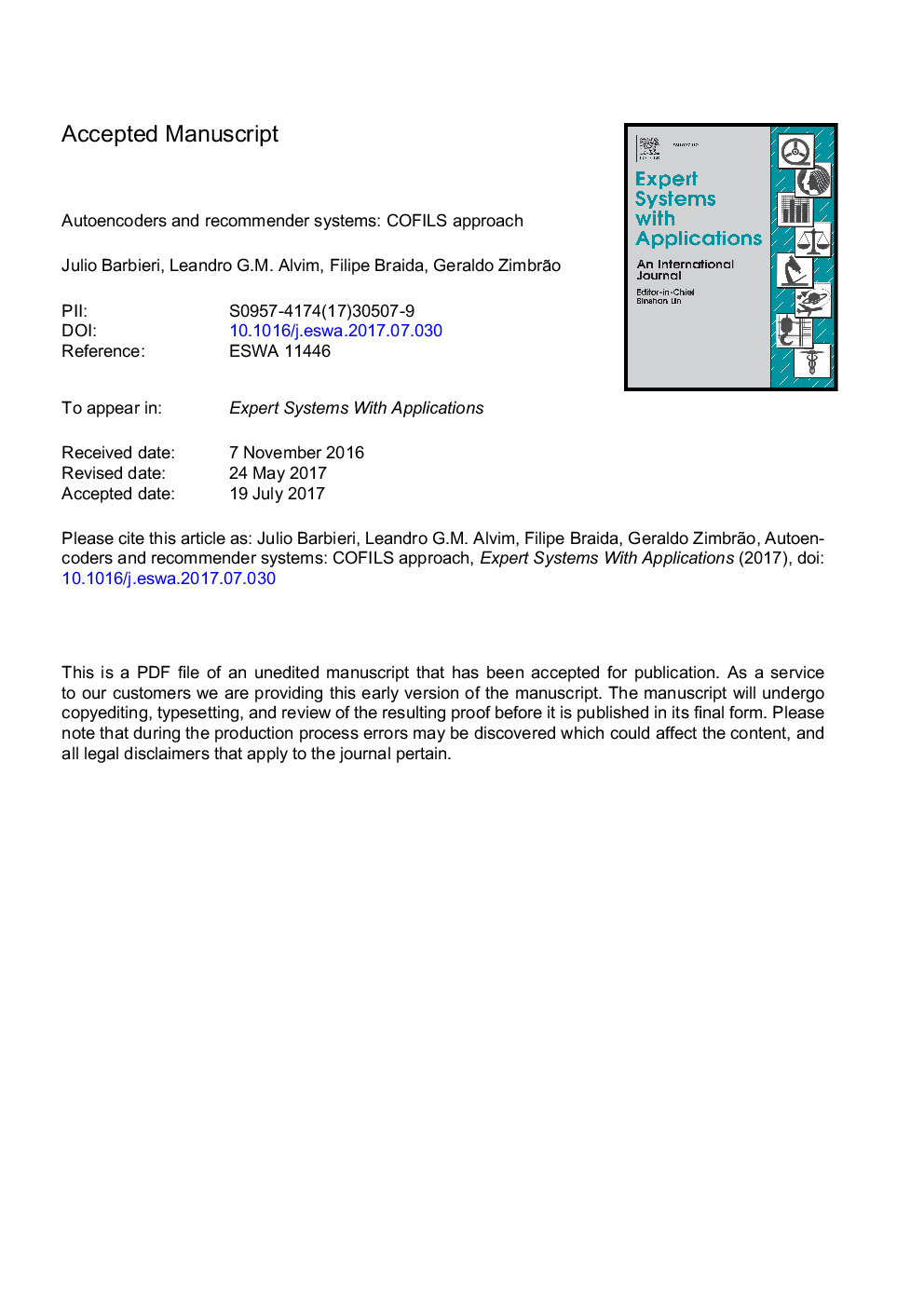| Article ID | Journal | Published Year | Pages | File Type |
|---|---|---|---|---|
| 4943207 | Expert Systems with Applications | 2017 | 14 Pages |
Abstract
Collaborative Filtering to Supervised Learning (COFILS) transforms a Collaborative Filtering (CF) problem into classical Supervised Learning (SL) problem. Applying COFILS reduces data sparsity and makes it possible to test a variety of SL algorithms rather than matrix decomposition methods. Its main steps are: extraction, mapping and prediction. Firstly, a Singular Value Decomposition (SVD) generates a set of latent variables from a ratings matrix. Next, on the mapping phase, a new data set is generated where each sample contains a set of latent variables from a user and each rated item; and a target that corresponds the user rating for that item. Finally, on the last phase, a SL algorithm is applied. One problem of COFILS is its dependency on SVD, that is not able to extract non-linear features from data and it is not robust to noisy data. To address this problem, we propose switching SVD to a Stacked Denoising Autoencoder (SDA) on the first phase of COFILS. With SDA, more useful and complex representations can be learned in a neural network with a local denoising criterion. We test our novel technique, namely Autoencoder COFILS (A-COFILS), on MovieLens, R3 Yahoo! Music and Movie Tweetings data sets and compare to COFILS, as a baseline, and state of the art CF techniques. Our results indicate that A- COFILS outperforms COFILS for all the data sets and with an improvement up to 5.9%. Also, A-COFILS achieves the best result for the MovieLens 100k data set and ranks on the top three algorithms for these data sets. Thus, we show that our technique represents an advance on COFILS methodology, improving its results and making it a suitable method for CF problem.
Related Topics
Physical Sciences and Engineering
Computer Science
Artificial Intelligence
Authors
Julio Barbieri, Leandro G.M. Alvim, Filipe Braida, Geraldo Zimbrão,
